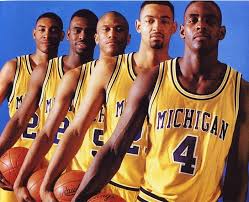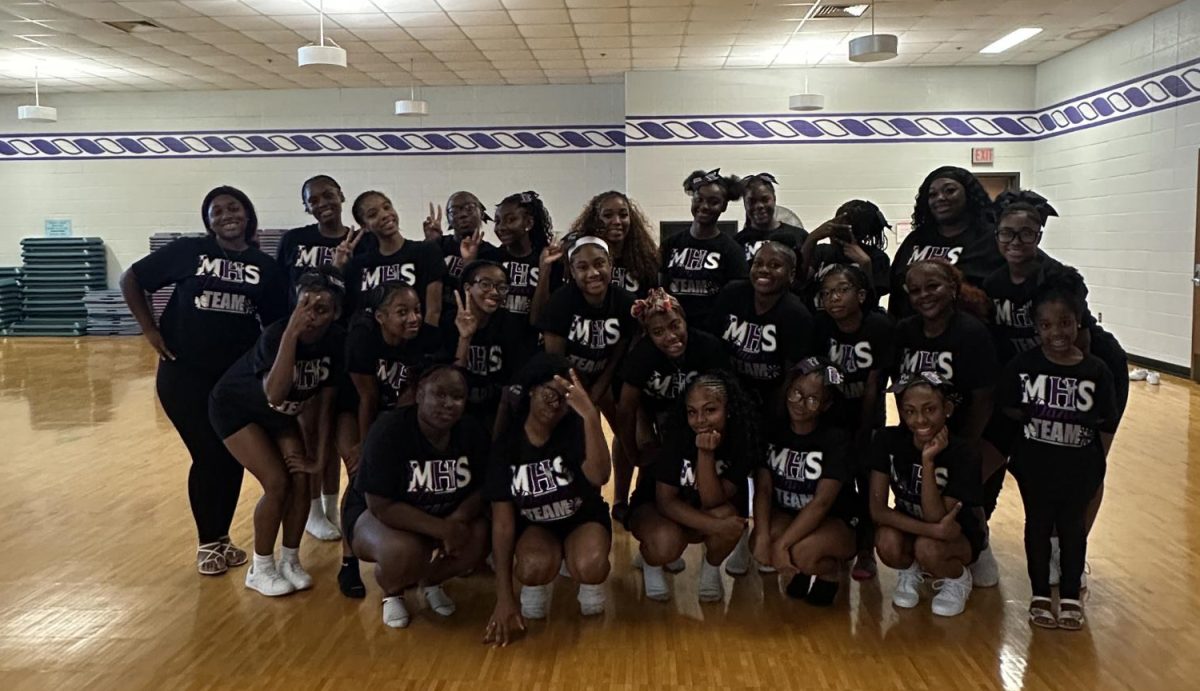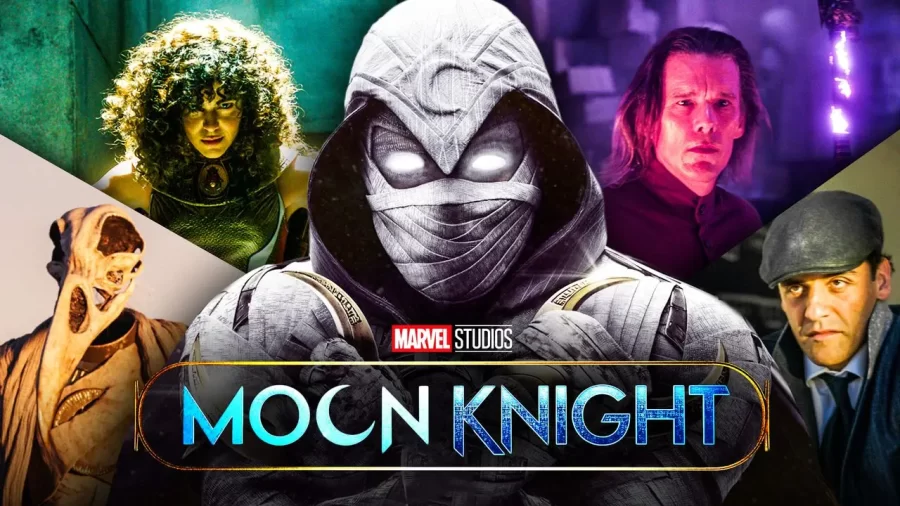Moonknight delves into deep psychological territory
May 23, 2022
(Warning: This article contains spoilers if you have not seen “Moon Knight”)
“Moon Knight” is the most recent Marvel short series to air on Disney+. Oscar Isaac, starring in multiple roles, does a great job of bringing the world of Egyptian lore and mythology to life. With the acting, CGI, and amazing execution of the plot, “Moon Knight” is definitely worth watching.
Steven Grant, a clumsy and socially awkward employee at a grand museum currently featuring Egyptian culture, frequently experiences blackouts which mess with his daily routine of life. From forgetting dates, mysteriously showing up in unknown places, to unknowingly canceling said dates, Steven is thrown for a loop trying to figure out what’s happening to him and what that mysterious voice is in his head urging him to let it “take over.”
Steven soon figures out that that “mysterious voice” has a name, Marc Spector, and is an alternate version of himself that knows other people that he doesn’t and is involved in something more grave than Steven’s social awkwardness.
Aside from the trouble and danger surrounding Marc and Steven having no choice but to be pulled along for the ride, their mental state comes into the mix. It is unintentionally revealed to Steven, who previously believed that he was the original identity between him and Marc, that he is simply an identity created by Marc.
Canonically, Marc is diagnosed with dissociative identity disorder (DID). Dissociative identity disorder is a mental disorder in which a person has at least two distinct and relatively enduring personality states. Steven Grant is just one of Marc Spector’s known identities resulting from his serious childhood trauma and his connection to the Egyptian lunar deity Khonshu. Additionally, with his connection to Khonshu, Marc Spector is granted a suit to fight evil as Khonshu’s earthly avatar, Moon Knight.
While the show does touch bases on Marc’s DID, the question is if it’s good representation of mental disorders and how they affect the lives of people and even extraordinary superheroes. Marvel is no stranger to showing the daily struggles of their superheroes however simple or troubling they may be. Various movies and shows of theirs feature characters with mental illnesses or physical disabilities such as Scarlet Witch, Iron Man, and Hawkeye. Personally, I think that Marvel and Oscar Isaac did a great job of portraying DID as accurately as possible. That doesn’t mean it’s completely accurate though. The creator of the series, Jeremy Slater, has stated that he and the producers wanted Moon Knight “to be ultimately good and uplifting and have a positive message about mental health.”
Some symptoms of DID are amnesia or blackouts, self-destructive behavior, or flashbacks. These symptoms, and more, were seen multiple times in Moon Knight. Even in the first episode when we see Steven blackout multiple times during that wild car chase. That wild car chase that happened in that unknown place. You see what I’m getting at right? This is an instance where Steven experiences the amnesia that comes with DID. If he were a little smarter, he would have looked up his symptoms and figured out that he’s just a copy (no offense to Steven. I love him, I swear).
In episode 5, “Asylum,” Steven figures out what he really is through a series of flashbacks in the form of walking through doors in an asylum which are Marc’s memories. In later episodes, before Steven realizes he’s just an alternate version of Marc, Marc takes over “Steven’s body” and punches Steven in the face. Now, I know this isn’t self-destructive behavior as in a negative way but he literally punched himself in the face. Seems pretty self-destructive to me. Maybe I’m just reaching. But, that doesn’t take away the fact that Marc has DID. Even while engaging us in the adventure, danger, and excitement of the plot, the plot still takes time to let us discover and explore Marc’s mental disorder and express to us how it affects his daily and superhero life.

























